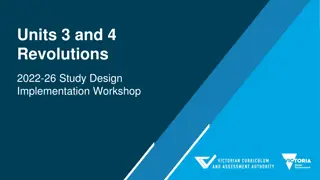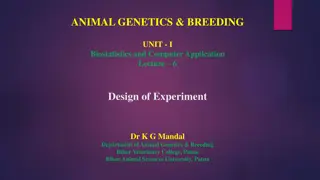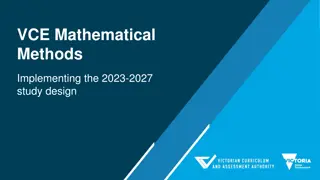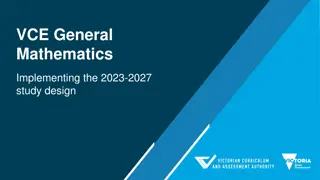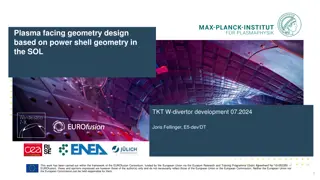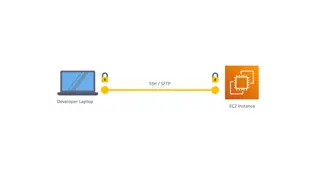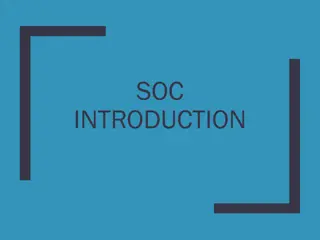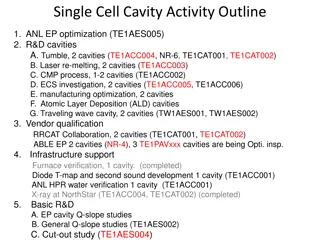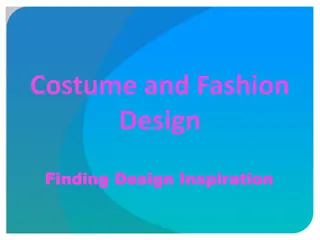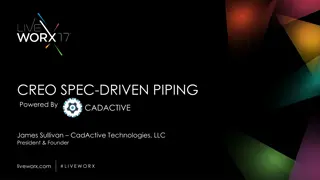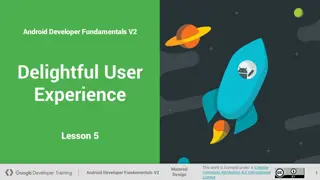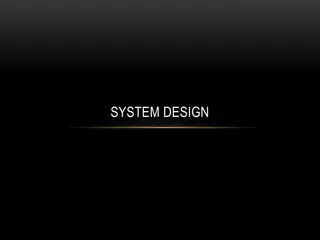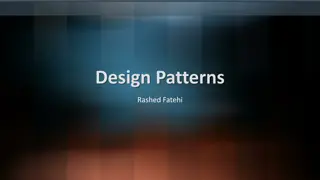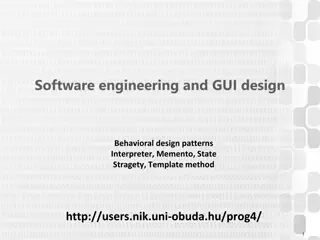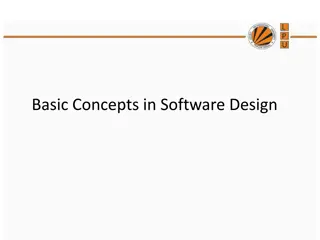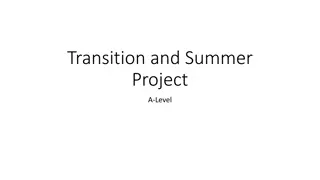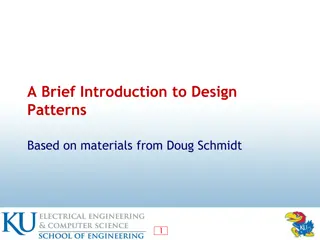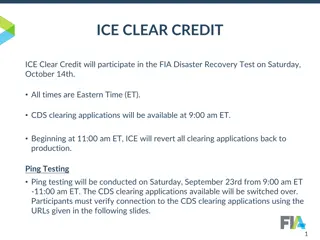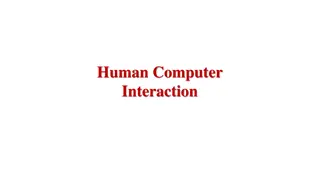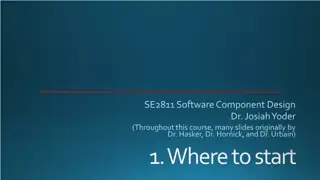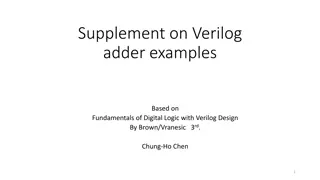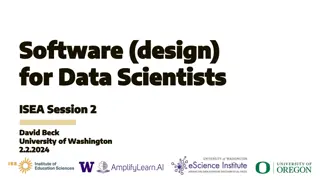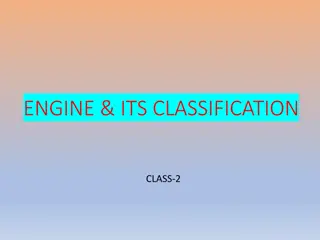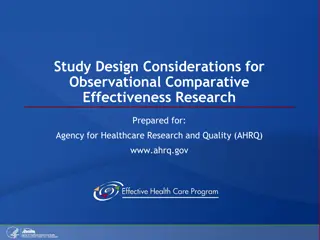Dell Technologies D-ECS-DS-23 Prep: Triumph Over Challenges
Begin your journey towards mastering Storage with the Dell Technologies D-ECS-DS-23 certification. Initiate your prep here: \ud83e\udc0a https:\/\/bit.ly\/3Ie5keL \ud83e\udc08. Access comprehensive details on the D-ECS-DS-23 exam guide, including tutorials, practice tests, books, study materials, ex
0 views • 16 slides
Dell Technologies D-ECS-DS-23 Prep: Triumph Over Challenges
Begin your journey towards mastering Storage with the Dell Technologies D-ECS-DS-23 certification. Initiate your prep here: \ud83e\udc0a https:\/\/bit.ly\/3Ie5keL \ud83e\udc08. Access comprehensive details on the D-ECS-DS-23 exam guide, including tutorials, practice tests, books, study materials, ex
1 views • 16 slides
Elevate Mastery D-ECS-DY-23 Dell ECS Deploy 2023 Exam Success
Empower your career with success in the D-ECS-DY-23 Exam. Master Dell Technologies ECS Deploy 2023 using our comprehensive study materials, practice tests, and expert guidance.\n\/\/ \/pdf\/D-ECS-DY-23\/
1 views • 6 slides
Optimize Solutions D-ECS-DS-23 Dell ECS Design Exam Mastery
Prepare for the D-ECS-DS-23 exam with confidence. Master the Dell ECS Design 2023 certification with comprehensive study materials, practice tests, and expert guidance. Gain the skills and knowledge needed to excel in designing ECS solutions. Our resources will help you navigate through exam objecti
0 views • 6 slides
Understanding Software Analysis and Design Process
Software analysis and design involve a systematic approach to understanding user requirements, creating logical models, and transitioning to detailed design specifications. Requirements analysis focuses on capturing system requirements, while design translates these requirements into implementation
7 views • 16 slides
Understanding the Process and Types of Research Design
The process of research design involves interactive stages that occur simultaneously, leading to the designing of a research study. This includes steps in research design, classification of research design types, such as exploratory, descriptive, and experimental/causal research design. Each type se
12 views • 8 slides
Exploring Game Design Elements and Character Creation Insights
In this content, we delve into various aspects of game design, character creation, and level design. From discussing a character's appearance, personality, abilities, and backstory to analyzing key elements of level design like gameplay mechanics, flow, and storytelling, this comprehensive guide pro
8 views • 10 slides
Study Design for Units 3 and 4 Revolutions 2022-26 Workshop
Explore the study design and implementation for Units 3 and 4 Revolutions focusing on key areas like causes and consequences of revolutions in countries such as Russia, China, America, and France. The workshop emphasizes acknowledgment of traditional custodians and offers teaching ideas, questions f
0 views • 29 slides
Design of Experiment in Animal Genetics & Breeding: Principles and Methods
Biostatistics and computer applications play a key role in the design of experiments in animal genetics and breeding. Proper allotment of treatments to experimental units is crucial to study treatment effects accurately. Designing experiments helps in maximizing information from available resources,
0 views • 37 slides
MTC Comments on Paratus Telecommunications Reconside...
MTC objects to the award of a telecommunications license to the Municipal Council of Windhoek citing contravention of the Communications Act and Administrative Law. They highlight the failure to follow proper licensing procedures and explain the differences between ECS and ECNS licenses, emphasizing
0 views • 13 slides
Implementing the VCE Mathematical Methods 2023-2027 Study Design
The VCE Mathematical Methods study design for 2023-2027 includes a detailed outline of the curriculum, revisions in Units 1-4, investigations leading to assessments, and FAQs. The study design was the result of thorough consultation and review, published in February 2022 and accredited by VRQA. It f
5 views • 31 slides
General Mathematics Study Design 2023-2027 Overview
The General Mathematics Study Design for 2023-2027 includes prescribed content for Units 1 and 2, covering areas such as data analysis, probability, algebra, functions, discrete mathematics, and more. The study design aims to provide a structured framework for students in understanding mathematical
1 views • 32 slides
Guidelines for Design of Cement Concrete Pavement and Interlocking Paver Blocks
This document provides guidelines for designing cement concrete pavements and interlocking paver blocks, covering factors governing design, wheel loads, design period, subgrade characteristics, approximate k values based on CBR values, and the importance of a sub-base below concrete pavements. It em
0 views • 67 slides
Diagnostic Test Accuracy Study: Design and Implementation
This content delves into the pathway of a diagnostic test from development to clinical application, focusing on the basic concepts of diagnostic test accuracy, study design, the 2x2 table, and key terminology. It discusses the importance of study design in assessing diagnostic accuracy, including fa
0 views • 16 slides
Software Engineering Design Principles and Concepts
The chapter discusses the essential principles and concepts in software design, highlighting the four key design models - data design, architectural design, interface design, and component-level design. It emphasizes the importance of traceability to the analysis model, minimizing the gap between so
0 views • 36 slides
Development of Plasma-Facing Geometry Design for W-Divertor in SOLTKT Fusion Reactor
Study on the plasma-facing geometry design based on power shell geometry in the SOL TKT W-divertor development for the fusion reactor. The research involves fundamental differences in divertor baffle design, materials used, heat load requirements, interface connections, and key design concerns. The
0 views • 14 slides
Development Process Using SSH, SFTP, EC2 Instances, and Autoscaling Groups
Exploring the development workflow involving SSH, SFTP, EC2 instances, and Autoscaling Groups for code merging, building, and releasing applications in the cloud environment using technologies like Amazon Elastic Container Service (ECS). The images provide insights into setting up developer laptops,
0 views • 5 slides
E-Cigarettes for Smoking Cessation: E3 Trial Summary
A randomized controlled trial led by Dr. Mark J. Eisenberg at McGill University evaluated the efficacy and safety of E-Cigarettes (ECs) for smoking cessation. The study aimed to compare the effectiveness of nicotine and non-nicotine ECs with individual counseling against counseling alone. The trial
2 views • 18 slides
Understanding System on Chip (SoC) Design and Components
Explore the world of System on Chip (SoC) design, components, and working flow. Learn about Intellectual Properties (IP), platform-based design, typical design flows, top-down design approach, and the emerging Electronic System Level (ESL) design flow. Discover the essential components of an SoC, su
0 views • 45 slides
Single Cell Cavity Activity Overview
The Single Cell Cavity Activity includes ANL EP optimization, R&D cavities for various processes such as tumble, laser re-melting, CMP, ECS investigation, and manufacturing optimization. There are also activities related to Atomic Layer Deposition (ALD) cavities, traveling wave cavities, vendor qual
0 views • 4 slides
Exploring Design Inspiration and Elements in Costume and Fashion Design
Dive into the world of costume and fashion design through a visual journey of finding design inspiration, understanding the design process, emphasizing originality, and exploring different sources of creativity. Discover how technology, art, food, history, architecture, and nature can spark innovati
0 views • 45 slides
Enhancing Piping Design Efficiency with Spec-Driven Technology
Explore how Spec-Driven Piping technology powered by CADACTIVE offers a standardized approach for piping design in Creo Parametric. This innovative extension streamlines design communication, eliminates errors, and improves design efficiency by utilizing a master catalog, automated checking capabili
0 views • 15 slides
Material Design: Combining Classic Design Principles with Technological Innovation
Material Design is a design language that combines traditional design principles with the possibilities offered by technology and science. It emphasizes visual language, classic design elements, and innovation to create delightful user experiences. The Material Metaphor, Imagery, Typography, Color,
0 views • 34 slides
Comprehensive Guide to System Design Components and Techniques
System design involves the detailed planning and identification of components in an information system, aiming to provide users with a general understanding of the new system. This process includes techniques like flowcharts, prototyping, and component design, covering aspects such as output design,
0 views • 24 slides
Understanding Design Patterns: A Comprehensive Overview
Exploring the world of design patterns, this content delves into the essence of design patterns, their application in software design to resolve complexity, and the different types of design patterns - creational, structural, and behavioral. It also showcases examples of popular design patterns such
0 views • 22 slides
Guide to Behavioral Design Patterns in Software Engineering and GUI Design
Learn about key behavioral design patterns such as Interpreter, Memento, State, Strategy, and Template Method in software engineering and GUI design. Understand their purposes, implementation techniques, and when to use them effectively. Explore how these patterns enhance the design and functionalit
0 views • 42 slides
Christ-Centered Product Design Principles Guide
This guide focuses on designing products and services with Christ-centered principles in mind, aiming to impact clients holistically, including spiritually. It emphasizes the importance of intentional design to reflect Christ and His Kingdom. Key questions and strategies are provided to create produ
0 views • 7 slides
Understanding Basic Concepts in Software Design
Software design involves transforming customer requirements into a form suitable for implementation, with activities categorized into preliminary and detailed design stages. High-level design focuses on module identification and control relationships, while detailed design entails defining data stru
1 views • 24 slides
Exploring 3D Design and Critical Analysis in Architecture
Dive into the world of 3D design and critical analysis with a focus on architecture. Discover the stages of design, essential skills for designers, and areas of study in three-dimensional design. Delve into iconic buildings like Frank Lloyd Wright's Falling Water, analyze their key features, and eve
0 views • 9 slides
Understanding Design Patterns in Object-Oriented Design
Design patterns in object-oriented design (OOD) are essential templates that codify best practices for solving common problems. They help streamline development by capturing proven design decisions, promoting code reuse, and enhancing system flexibility and modularity. Learn about the core concepts,
0 views • 20 slides
NSF Atmospheric Chemistry Program Overview
The NSF Atmospheric Chemistry Program aims to characterize the chemical composition of the atmosphere, understand chemical processes, quantify fluxes of chemical substances, study natural and anthropogenic causes of variability, and assess impacts on climate. The program supports research through pe
0 views • 6 slides
ICE Clear Credit Disaster Recovery Test Information
ICE Clear Credit will participate in the FIA Disaster Recovery Test on October 14th. The test timings, applications available, and precautions for participants are detailed. Participants must verify connection to CDS clearing applications via provided URLs. Various functionalities such as Managed Fi
0 views • 8 slides
Understanding Interaction Design in Human-Computer Interaction
Interaction design focuses on creating interactive products that are easy, effective, and enjoyable to use. It aims to reduce negative user experiences while enhancing positive ones. Designing interactive products requires understanding user activities, interfaces, and device arrangements to support
0 views • 11 slides
SE2811 Software Component Design Overview
This course covers software component design, design patterns, object-oriented design, algorithms, and opportunities for reuse in systems design. It emphasizes the importance of domain-level design and provides insights into solving core problems through reusable classes.
0 views • 21 slides
Analysis of Bunch Lengthening in CEPC for Different Design Parameters
This study explores bunch lengthening in the Circular Electron Positron Collider (CEPC) for various design parameters, analyzing a 54 km design scheme, a 61 km design scheme, and a 100 km design scheme. The analysis includes the theoretical framework used, equations for bunch lengthening, and conclu
1 views • 15 slides
Understanding Plain & Reinforced Concrete Structures in Design Engineering
In the design of Plain & Reinforced Concrete structures, various strength design methods such as Ultimate Strength Design (USD) and Allowable Strength Design (ASD) are utilized. These methods involve factors of safety, material strength, load factors, and analysis in the elastic range. Additionally,
0 views • 11 slides
Verilog Adder Examples & Typical IC Design Flow
This comprehensive content delves into Verilog adder examples, typical IC design flow, physical design considerations, and examples of OpenGL ES GPU and ARM hypervisor applications. It covers the fundamentals of digital logic with Verilog design, hardware description language, FPGA prototyping, phys
0 views • 27 slides
Understanding the Importance of Software Design for Data Scientists
Today's ISEA Session 2 with David Beck from the University of Washington delves into the critical role of intentional software design for data scientists. The session covers the software design approach, user-centric design stories, use cases, components, testing strategies, and the benefits and dra
0 views • 76 slides
Understanding Engine Classification and Design
Engine classification involves categorizing engines based on various factors such as combustion type, number of strokes, cylinder design, and ignition method. Common classifications include external and internal combustion engines, as well as categories based on the design and use of the engine. Add
0 views • 11 slides
Study Design Considerations for Observational Comparative Effectiveness Research
This presentation outlines key considerations for study design in observational comparative effectiveness research, including rationale for design choice, defining start of follow-up, inclusion/exclusion criteria, exposures of interest, outcomes, and potential confounders. It discusses various study
0 views • 16 slides







